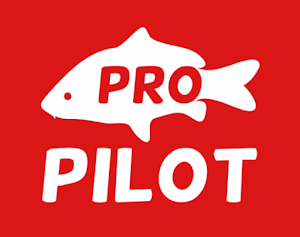Pigeons are among the most common birds in urban and rural areas of the UK. While they may appear harmless, their overpopulation can lead to property damage, contamination of food stores, and public health risks. Hunting pigeons as a means of pest control is a practice that has gained traction among landowners, farmers, and shooting enthusiasts. If done responsibly and within the boundaries of the law, it is an effective method to manage pigeon populations. This guide explores the use of the Remington Vought .22 rifle for pest control and provides an in-depth understanding of UK laws surrounding pigeon shooting.
Understanding the Need for Pigeon Control
Pigeons, often referred to as "flying rats," are known for their adaptability and rapid breeding. The problems associated with pigeon overpopulation include:
- Health Hazards: Pigeons carry diseases such as psittacosis, histoplasmosis, and salmonella, which can be transmitted to humans.
- Property Damage: Their droppings are highly acidic, causing damage to buildings, monuments, and vehicles.
- Crop Destruction: In rural areas, pigeons can cause significant harm to crops and stored grain.
- Public Nuisance: Large flocks create noise pollution and unsightly messes in public spaces.
Choosing the Remington Vought .22 for Pigeon Control
The Remington Vought .22 is a popular choice for small game and pest control due to its precision, reliability, and ease of use. Here's why it stands out:
- Accuracy: The .22 calibre rifle is designed for high accuracy, making it suitable for targeting small pests like pigeons.
- Quiet Operation: When paired with a sound moderator, the .22 is relatively quiet compared to larger calibres, minimising disturbance in urban or suburban areas.
- Ammunition Affordability: .22 LR ammunition is widely available and cost-effective, making it an economical choice for frequent shooting.
- Versatility: This rifle can be used for various small game hunting, making it a valuable addition to any shooter’s arsenal.
Legal Considerations for Pigeon Shooting in the UK
Shooting pigeons for pest control in the UK is strictly regulated. Here are the key legal points to bear in mind:
1. General Licences
Under the Wildlife and Countryside Act 1981, all wild birds in the UK are protected. However, certain species, including feral pigeons, woodpigeons, and collared doves, can be controlled under General Licences. These licences permit the killing or taking of birds for specific purposes, such as:
- Preventing serious damage to crops or livestock.
- Preserving public health and safety.
- Protecting other wildlife.
It is crucial to ensure that your actions fall within the conditions of the General Licence. The licences are reviewed annually, so staying updated with the latest regulations is essential.
2. Permission to Shoot
Before shooting on any land, you must have explicit permission from the landowner. Shooting without consent is considered trespassing and could lead to legal action.
3. Firearms Regulations
To use a Remington Vought .22, does not fall in to the category of the FAC licence and as long as you are 18 years old and give proof of your address you can buy a .22 Air rifle.
4. Safety and Public Awareness
- Ensure that you do not shoot near public paths, roads, or residential areas.
- Use a safe backstop to prevent ricochets or stray bullets.
- Avoid shooting during times of high pedestrian traffic in rural areas.
5. Non-lethal Alternatives
General Licences require shooters to consider non-lethal methods, such as deterrents or habitat modification, before resorting to shooting. Failure to demonstrate this could lead to penalties.
Hunting Pigeons Responsibly
When hunting pigeons with a .22 rifle, responsibility and ethical considerations are paramount. Here are some best practices:
1. Shot Placement
A clean, humane kill should be your priority. Aim for the pigeon’s head or chest for a quick, painless kill.
2. Scouting Locations
Identify areas where pigeons are causing significant problems. Look for roosting sites, feeding grounds, or crop damage. Scouting ensures that your efforts are focused and effective.
3. Timing
Early morning and late afternoon are ideal times for pigeon hunting, as they are most active during these periods.
4. Equipment Maintenance
Keep your Remington Vought .22 clean and well-maintained. Regularly check the scope, barrel, and trigger mechanism for optimal performance.
5. Disposal of Carcasses
Dispose of pigeon carcasses responsibly. Check local regulations for approved disposal methods, which may include incineration or burial.
Techniques for Pigeon Hunting with a .22 Rifle
1. Static Hunting
Position yourself near a known roosting or feeding area and wait for pigeons to arrive. Use camouflage clothing and a hide to remain undetected.
2. Decoy Hunting
Set up decoys to lure pigeons into a shooting range. This technique works well in open fields or near grain stores.
3. Stalking
This requires moving stealthily to get within range of pigeons. Be mindful of your surroundings and take advantage of natural cover.
Safety Tips for Shooting
- Identify Your Target: Always ensure the bird you are targeting is a legal quarry under the General Licence.
- Be Aware of Your Backdrop: Never shoot towards buildings, roads, or areas where people might be present.
- Eye and Ear Protection: Use protective gear to safeguard against accidents and prolonged exposure to gunfire noise.
- Inform Others: Notify neighbouring landowners or authorities about your planned activities to prevent misunderstandings.
The Ethics of Pigeon Hunting
Hunting pigeons for pest control is not just about reducing numbers; it is about doing so ethically and humanely. As a responsible shooter:
- Ensure that your actions align with the law and ethical practices.
- Avoid unnecessary suffering by honing your shooting skills.
- Respect the balance of nature and consider the environmental impact of your activities.
Conclusion
Hunting pigeons with a Remington Vought .22 rifle can be an effective and humane method of pest control if done within the confines of the law. By understanding the legal requirements, practising ethical shooting, and prioritising safety, you can contribute to managing pigeon populations responsibly. Remember, pest control is a privilege that comes with great responsibility, so always act with care and consideration.
By staying informed and practising due diligence, you can ensure that your efforts are both effective and respectful of the laws and ethics that govern hunting in the UK.






